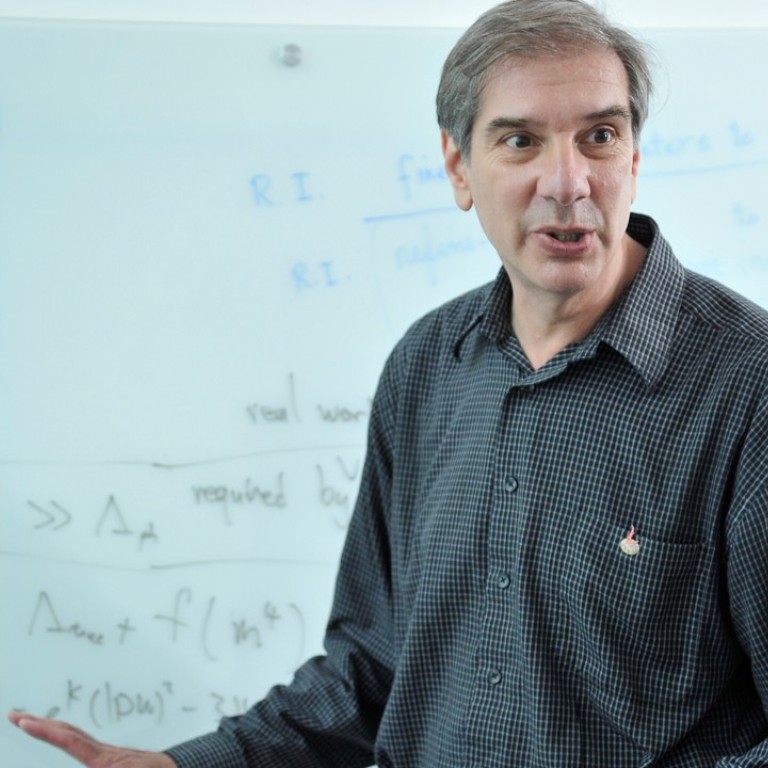
‘Time is now’ for Hong Kong to promote creative research that can lead to great discoveries
Physicist says city has a window of opportunity that may close if moment is not seized
Hong Kong is now perfectly positioned to attract creative researchers from around the world amid the rise of China, while America and Europe are less focused on such activities, the head of one of the city’s leading research institutes has said.
Professor Andrew Cohen, director of the Institute for Advanced Study at the University of Science and Technology, said the idea was to let creative people work on any subject they were interested in – not directed at making money or technology, but for exploring things that did not seem applicable to any field initially.
Speaking to the media following his recent appointment at the institute, Cohen said: “Whenever humanity has done this, it has always led to a transformation of society 100 years later.” He cited the influence of Isaac Newton’s ideas in modern society.
But the music-major-turned-physicist warned that the window of opportunity might only be fleeting for Hong Kong, as the West could soon move to catch up.
“It is a special opportunity for Hong Kong because the system [here] is based on [developed fields] in the US and Europe. Yet Hong Kong is a Chinese city.”
Cohen added that this would not have been possible 20 years ago.
The Harvard alumnus said: “If the US and Europe understand what they are giving up, they will start investing [again] and we cannot succeed.”
The world has changed and the education system has to change as well
While there has been some progress in innovation locally, Cohen lamented the dearth of creativity in some schools in the city, as well as in the US.
“Hong Kong is not going to continue the way it once did. The world has changed and the education system has to change as well,” he said.
The physicist also shared how he did not enjoy the orthodox curriculum in his student days, which led to him skipping school at the age of 12 and eventually dropping out.
“I think I was just interested in everything ... I convinced my parents to let me roam in the museums [of Washington DC] and do whatever I wanted,” he said.
With his newfound creativity, he started an express programme at the University of Delaware for a high school diploma.
It was not until his time as an undergraduate at Stanford University that Cohen became passionate about formal education, being around a community of kindred spirits who were interested in everything and how they could transform society.
“School isn’t the only way to educate your children. If the school isn’t providing the opportunity for children, there are other ways,” he said.

